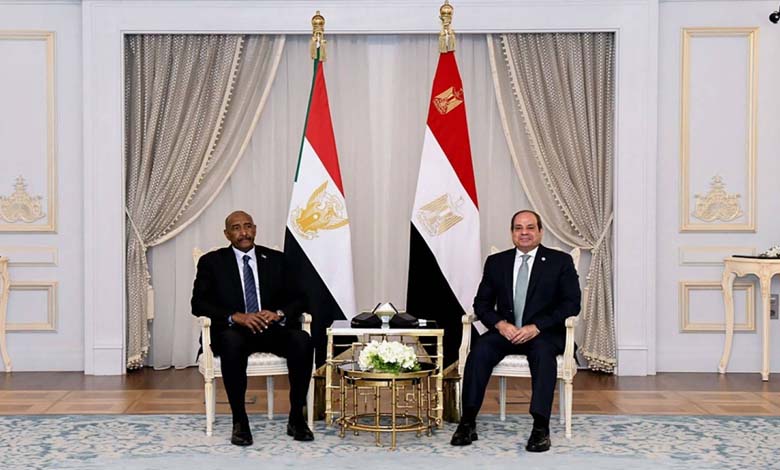Egypt and the Quiet Veto: Who Derailed the Washington Summit on Sudan?

Amid faltering international efforts to end the Sudanese catastrophe, the abrupt cancellation of the Washington quadrilateral summit — which was set to gather the United States, Egypt, Saudi Arabia, and the United Arab Emirates marked a turning point in revealing the extent of regional and global discord over Sudan’s future. The summit, initially expected to offer a breakthrough in the political process, collapsed at the last moment due to Egypt’s firm opposition to a proposal calling for a civilian-led transitional phase that would exclude the warring military factions.
-
The Sudanese Army’s Defeat in El-Fasher… A Defeat of Repression, Not Just a Battlefield Loss
-
Trump and Sudan: Can the Still Waters Move Again?
For many observers, Egypt’s objection was not surprising. It was rather a reaffirmation of Cairo’s traditional approach, which places military actors at the heart of stability and national interest. Egypt, closely allied with Sudan’s military establishment, views any attempt to sideline the army as a direct threat to its geopolitical influence in Khartoum and a strategic risk to its national security along the Nile basin.
While Washington advocated a new vision led by neutral civilian forces, Egypt perceived this as an attempt to delegitimize its military allies and a tacit endorsement of the Rapid Support Forces (RSF). From a narrow national interest perspective, Egypt’s position may seem logical — yet it raises serious concerns about its role as a responsible regional stakeholder in a conflict as complex and devastating as Sudan’s civil war.
-
Sudan’s Muslim Brotherhood Wants Endless War… and the UAE in the Crosshairs of Lies
-
Ethnic Cleansing in Al-Khuwai and Al-Hammadi: A Horrifying Escalation in Sudan’s Militia Warfare
Notably, Saudi Arabia and the UAE did not oppose the American proposal. Though their political calculations differ from Washington’s, both showed openness to dialogue. It was Egypt’s unwavering stance that ultimately derailed the summit, introducing what many describe as a “silent veto” — a decisive factor that exacerbates, rather than resolves, the Sudanese crisis.
This impasse highlights a stark paradox: while Sudan spirals deeper into civil war, regional and international actors remain entangled in competing agendas, rendering potential solutions hostage to divergent priorities. By asserting that Sudan’s stability lies exclusively through military governance, Egypt sends a troubling message — one that places control over compassion, and power over peace, regardless of human cost.
-
Sudan: Reliable Evidence Unveiled of Chemical Weapons Used to Kill and Maim Hundreds of Civilians Including Children in Darfur
-
Sudan Shaken by Retirees’ “No”: A Voice from the Army Rises Against War and Chemical Weapons
The failure of the Washington summit not only reflects internal divisions among the participants but also exposes the broader failure of the international system to formulate a coherent response to the wave of military coups across Africa. While Washington promotes a civilian-led transition free from the shadow of weapons, other regional players seem resigned to accepting military rule as a permanent reality.
Sudan did not need another failure — nor a cancelled summit. It needed bold consensus, one that rises above narrow calculations to embrace a vision of national rescue. But as long as the country’s fate remains entangled in regional vetos and intersecting interests, war will continue to dominate the narrative, and peace will remain a distant, elusive prospect.












